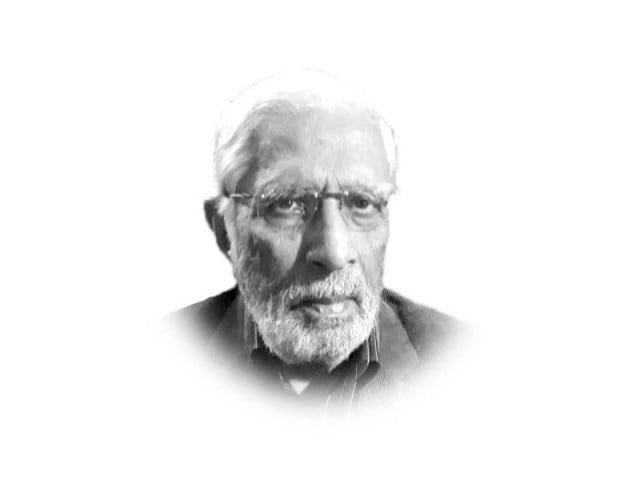Transitions are prone to accidents
The eyeball-to-eyeball confrontation between PTI and the opposition seems well on the road to a point of no return

Democracy is always noisy. It has to be. When you have a government party trying to implement its long-term manifesto which normally takes a life-time to realise, execute at the same time a number of development projects with an eye on the next election and also trying to keep the opposition from capturing the centre stage in the ongoing vociferous verbal confrontation via the media as well as through public meetings, you simply cannot hope to avoid deafening ruckus. You have to live with it, not lose your mind because of it.
Indeed, both the ruling party and the opposition should know that, while going for each other’s jugular which is legitimate in a robust democracy, they need to stop before crossing the point of no return so that no matter who among the two contestants loses or wins, the system itself survives ensuring continuation of democratic process.
The red lines identifying the points of no return are well defined in the Constitution. Democrats well-versed in Constitutional matters know when to step back. But during transitions from one system of governance to the other, accidents do happen and points of no return get crossed; that is when the democratic process gets derailed. Pakistan has suffered from such accidents number of times in the past.
The first time that happened was when the then Governor General Ghulam Mohammad dissolved the Constituent Assembly on 24 October, 1954 as we were transiting from colonial rule to independence. This derailment also saw the first military takeover (October 1958) that morphed into a presidential form of government with Field Marshal Ayub Khan having been ‘elected’ in January 1965, by an electoral college composed of Basic Democrats, who had been patronised under a system of grants and development funds since their own elections in 1959.
This derailment saw the second military takeover, two Indo-Pak wars and the dismemberment of the country.
This derailment lasted until about the time when we finally contracted a broadly consented Constitution in 1973 and entered once again a phase of transition from military rule to parliamentary democracy. But it did not take long for the accident-prone transition to suffer from the third military takeover on 5 July, 1977.
This derailment lasted until the seeming restoration of democracy with elections being held in October 1988. This was the period when democracy was used as a façade with the Army ruling from behind the scene. The façade came to an end when the Army staged its fourth takeover in October 1999. During this decade of democratic façade Pakistan fought three wars — one in support of Afghan Taliban against the Northern Alliance and the other (using non-state actors) in support of the freedom fighters of Indian occupied Kashmir, the third against India in Kargil.
This derailment lasted until about the time when elections were held in 2008. During this derailment we fought two wars – one in support of American troops against Al-Qaida in Afghanistan and a terror war within against Tehreek-i-Taliban, Pakistan (TTP). War against TTP is tapering off but complete victory still seems elusive. We also saw the assassination of former Prime Minister Benazir Bhutto during this period.
We are still transiting from Musharraf’s military rule to a democratic dispensation and saw for a change and, for the better, two peaceful transfers of power from one elected government to the other. Both the rules of the PPP (2008-2013) and the PML-N (2013-2018) had remained prone to accidents throughout their respective tenures. But the Superior Courts seemingly went off the books to help avert these potential accidents. In the PPP case, it got rid of expected cause of an accident by dismissing Prime Minister Yousaf Raza Gillani on the flimsy charge of contempt of court; and in the case of the PML-N, it got rid of the cause by disqualifying Prime Minister Nawaz Sharif for life on the dubious charge of him not being Sadiq and Amin.
Transition continues. And the eyeball-to-eyeball confrontation between the PTI government and the opposition seems well on the road to a point of no return. It is, therefore, time for the two to step back so that the courts do not step in and do what is not their job.













COMMENTS
Comments are moderated and generally will be posted if they are on-topic and not abusive.
For more information, please see our Comments FAQ